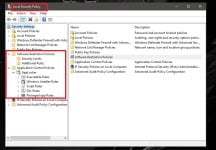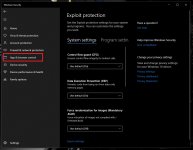- Nov 1, 2019
- 11
I am managing a small office (7 users, Windows 10, Windows Server 2016) and I have limited knowledge in this area. I am software developer trying to get up to speed on security
We receive a lot of emails (Microsoft Office 2016) - mostly office files and pdf and some images (jpg, png , gif etc)
I have bitdefender rolled out (GravityZone) and it seems to work well
I am looking at whitelisting applications using AppLocker but think also a sandboxing technology like Sandboxie would compliment Bitdefender but sboxie seems to on a slow death and probably not the way go forward.
I have seen the Re:Hips video and doco and it looks really promising but I have to admit I am a alittle concerned that my lack of knowledge will be missing some 'large security hole'
Are these 2 softwares (Re:Hips + Bitdefender) a good combination to give me good security coverage or am I missing something?
VoodooShield, osarmour, ransomoff, - are they just the same kind of applications or do they cover something the above 2 do not?
My users are pretty careful and well educated but I really want to tighten the security and potential for exploits
any advice appreciated
We receive a lot of emails (Microsoft Office 2016) - mostly office files and pdf and some images (jpg, png , gif etc)
I have bitdefender rolled out (GravityZone) and it seems to work well
I am looking at whitelisting applications using AppLocker but think also a sandboxing technology like Sandboxie would compliment Bitdefender but sboxie seems to on a slow death and probably not the way go forward.
I have seen the Re:Hips video and doco and it looks really promising but I have to admit I am a alittle concerned that my lack of knowledge will be missing some 'large security hole'
Are these 2 softwares (Re:Hips + Bitdefender) a good combination to give me good security coverage or am I missing something?
VoodooShield, osarmour, ransomoff, - are they just the same kind of applications or do they cover something the above 2 do not?
My users are pretty careful and well educated but I really want to tighten the security and potential for exploits
any advice appreciated



